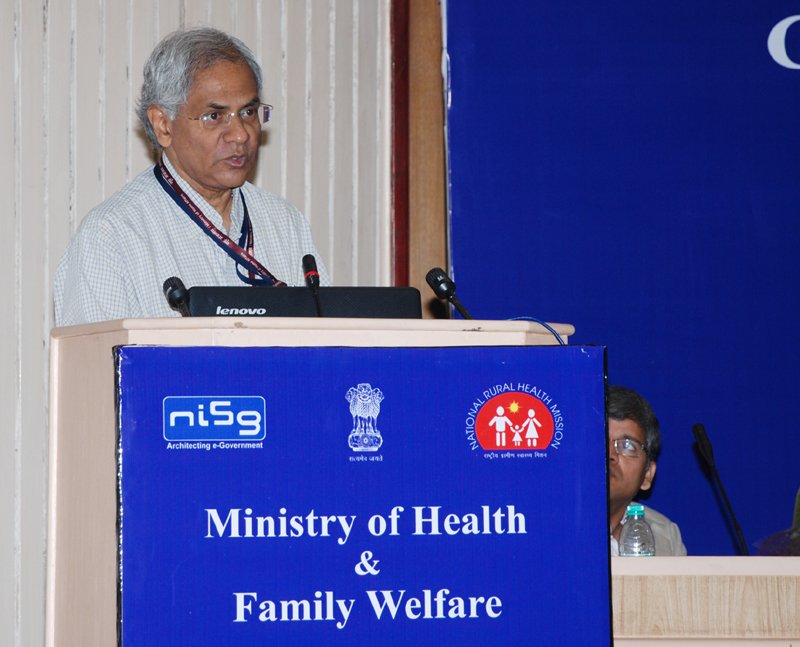India calls for scaling up response to non-communicable diseases
April 05, 2013 | Friday | News | By BioSpectrum Bureau
India calls for scaling up response to non-communicable diseases
Mr Keshav Desiraju, secretary of health and family welfare, government of India
Addressing the inaugural programme of the national conference organised by the ministry of health and family welfare and the world health organization (WHO) to celebrate World Health Day 2013, Keshav Desiraju said the prevalence of NCDs such as cardiovascular disease, diabetes, chronic obstructive pulmonary disease, and cancers is increasing.High blood pressure is a leading risk factor for cardiovascular disease; in 2008, 24% of all deaths in India were from cardiovascular diseases. He stressed the need to address the major risk factors such as unhealthy diet, physical inactivity, tobacco intake, harmful use of alcohol by creating awareness on promotion of healthy lifestyle and habits among the community.
He urged for a stronger focus on high blood pressure, the theme of the World Health Day 2013 as part of a comprehensive approach to NCDs. He revealed that the Government plans to scale up the response to the NCDs epidemic by expanding the National Programme for Prevention and Control of Cancer, Diabetes, Cardiovascular Diseases and Stroke (NPCDCS) from 100 districts at present to cover all districts in the country during the 12th Five Year Plan. He also spoke about the steps taken by the Government of India for early detection of diabetes and blood pressure. Under the NPCDCS, about 1.76 crores persons aged 30 years and above have been screened for diabetes and hypertension, out of which 7.22% were suspected of having diabetes and 6.59% hypertension.
Highlighting the reasons for choosing 'High Blood Pressure' as the theme for World Health Day 2013, Dr. Nata Menabde, WHO Representative to India said "High blood pressure affects one in three adults worldwide and leads to more than nine million deaths globally every year. Many people do not even know they suffer from high blood pressure." Dr. Menabde stressed the need for action at the community level for prevention and control of this silent killer. She further stated that in many countries, including India, the out-of-pocket expenditure incurred on NCDs is high, contributing to the impoverishment of households and hitting the poor the worst. She also added that medicines for these chronic diseases account for a large portion of expenditure.
Addressing the programme, Dr. Jagdish Prasad, director general of health services said that it is essential to address NCDs (including high blood pressure) in health system strengthening efforts for universal health coverage.
Speakers at the conference emphasized the need to ensure an environment conducive to healthy lifestyles, in which it is easier for all people to make choices that promote their health. Such an environment reduces exposure to the risk factors for NCDs, such as tobacco use, unhealthy diets, harmful use of alcohol and insufficient physical activity.
Coordination between the health sector, food and agriculture sector and other relevant stakeholders for the reduction of salt intake in food was cited as one of the best buys for the reduction of hypertension and related cardiovascular diseases.
It may be mentioned that the Government of India has been a key player in WHO processes towards the production of draft global and regional action plans for 2013-2020 to address NCDs, as well as the creation of a draft global monitoring framework for the prevention and control of NCDs. The monitoring framework has the overarching goal of a 25% reduction in premature mortality from NCDs by 2025. All countries are being encouraged by WHO to create national monitoring frameworks, drawing from the global one, which is expected to be approved by the World Health Assembly in May 2013.









